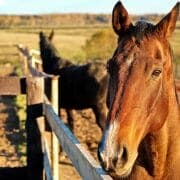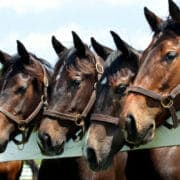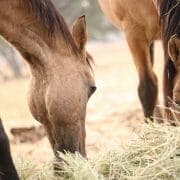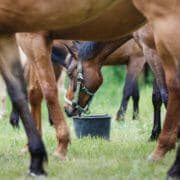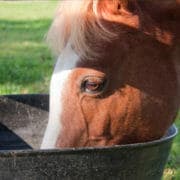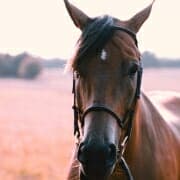Vitamin C for Horses
Vitamin C for horses: what you need to know
What is vitamin C?
Vitamin C, also known as ascorbic acid, is a water-soluble vitamin. It is an important antioxidant and broadly plays a vital role in immune function, collagen synthesis, and hormone production.
Do horses need it?
Did you know that vitamin C is not considered an essential nutrient in your horse’s diet? Unlike humans, who will get scurvy and die if they don’t eat enough of it, horses make their own vitamin C in their liver from glucose.
While healthy horses synthesise enough of it to meet their body’s own requirements, there are some situations whereby a horse’s own synthesis may not be sufficient to meet their normal needs or where an underlying cause requires more vitamin C. Such situations include aged horses, post-operative cases, horses that suffer from respiratory conditions, during periods of illness, high-performance horses (particularly those stabled for prolonged periods), and during times of stress (such as transport).
What about vitamin C supplements for horses?
Based on studies, a recommended supplemental dosage of vitamin C for horses is 10-20mg per kg of body weight (5,000-10,000mg for a 500kg/1100lb horse).
There are different forms of vitamin C available, and they all have similar absorption and efficacy. However, stabilised forms appear advantageous over straight ascorbic acid as they are less acidic and may be gentler on the digestive tract. To find a stabilised form, look for coated ascorbic acid, ascorbyl palmitate, or those composed of phosphate esters of ascorbic acid (also called “buffered” ascorbic acid). These buffered forms include sodium ascorbate, calcium ascorbate, or magnesium ascorbate.
Keep in mind that if you’ve been supplementing with vitamin C for more than 10 days, don’t stop abruptly. Instead, taper off slowly over 7 days to allow your horse’s body to upregulate its own production again.
For FeedXL Premium Plan members, you can track how much supplementary vitamin C is in your horse’s diet via the Additional Nutrients tab in the Review Results step.
Do you have a question or comment? Do you need help with feeding?
We would love to welcome you to our FeedXL Horse Nutrition Facebook Group. Ask questions and have them answered by PhD and Masters qualified equine nutritionists and spend time with like-minded horse owners. It’s free!
Click here to join the FeedXL Horse Nutrition Facebook Group



